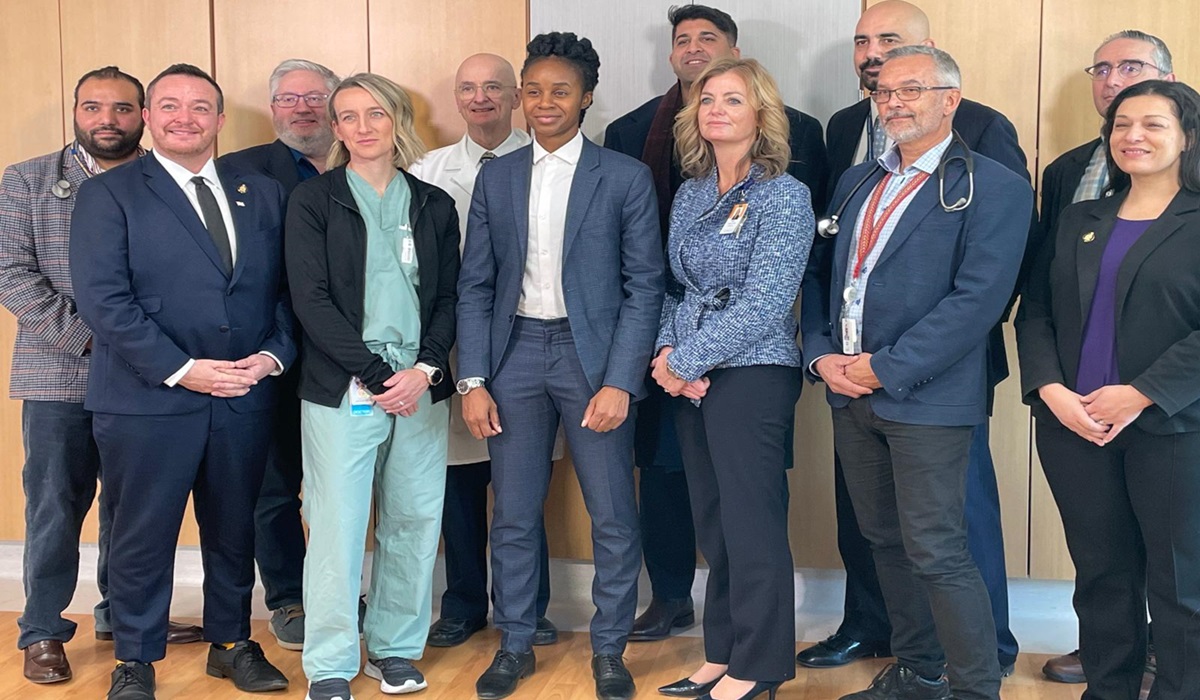Unlocking Potential: Dissolving the Surgical Task Force for Improved Healthcare in Manitoba
- TDS News
- Trending
- Western Canada
- November 18, 2023

In resolutely pursuing their promise to Manitobans for a more effective healthcare system, Deputy Premier and Health Minister Uzoma Asagwara is spearheading transformative changes. This starts with dissolving the Diagnostic and Surgical Recovery Task Force (DSRTF). The focus is on fostering positive shifts that will address existing challenges and ensure decisions are made collaboratively with medical professionals, marking a significant departure from past practices.
The issues inherited from the previous administration are undeniable, as closed surgical rooms and extended hospital wait times leave Manitobans in a precarious situation. The PC government’s attempts to amalgamate and contract resources and the subsequent longer hospital waiting lines indicated a struggling healthcare system. The onset of the COVID-19 pandemic only exacerbated these issues, leading the previous administration to invest millions in establishing the DSRTF.
A new approach by the current administration reflects a commitment to reassessing strategies and redirecting focus and funding to public healthcare delivery. This strategic shift signifies a departure from the status quo and underscores the government’s determination to deliver tangible improvements in the healthcare landscape.
“For the Grace Hospital, the addition of surgical slates for urology and arthroplasty means the community can expect enhanced surgical procedures, improved patient outcomes, and a higher standard of care,” said Asagwara.
Creating the Surgical Task Force was a significant response to the urgent need for increased surgical capacity. Intending to bridge the gap, the initiative involved sending hundreds of Manitoba patients to the United States for surgeries. While the exact cost to taxpayers remains undisclosed, the expense of utilizing the American healthcare system is acknowledged.
PC health critic Kathleen Cook has sharply criticized the decision to disband the DSRTF, contending that abandoning the task force’s work is irresponsible without ensuring sufficient local capacity. Critics, pointing to potential gaps in capacity, join Manitobans in arguing that the void may be attributed to the previous administration’s lack of understanding and consultation with frontline professionals. The criticism regarding a lack of capacity underscores the Conservative’s failure to consult with professionals in the field, highlighting the significance of insights from doctors, nurses, and other staff in understanding the complexities of healthcare delivery.
Deputy Premier Asagwara defended the government’s decision, emphasizing a commitment to building capacity within the province. The move aims to refocus on public health delivery, with priority investments in surgeries and diagnostics. Asagwara assures that patients already scheduled for care will not face delays during the transition, and the government will collaborate closely with medical professionals for continued innovation and investment in capacity.
The NDP has proposed three projects to tackle surgical and diagnostic wait times. These initiatives involve deploying a mobile MRI service in the Northern Regional Health Authority, expanding surgical slates at the Grace Hospital, and enhancing spinal surgery programs at various facilities. This marks a shift towards prioritizing long-term capacity development within Manitoba’s public health system, addressing the lack of MRI machines, particularly in Northern communities, and underscoring the necessity for strategic planning and infrastructure investment.
“Having an MRI machine in northern Manitoba is going to be a huge step in bringing care closer to our patients and their loved ones, thereby reducing the need to travel large distances to receive this service in southern Manitoba,” said Dr. Harsahil Singh, vice-president medical services and chief medical officer, Northern Health Region. “It will allow patients to get timely access to this important diagnostic tool. MRI enables clinicians to make critical clinical decisions that improves patient care, and we are excited to have this facility available in the north in the near future.”
The decision to dissolve the Surgical Task Force has ignited a debate about healthcare in Manitoba. While criticisms exist, the government’s commitment to building capacity and addressing longstanding issues is evident. Monitoring the implementation of proposed projects is crucial to evaluating their impact on reducing wait times and improving healthcare delivery for Manitobans during this transition period. Recognizing the challenges faced by the previous government and the inevitability of change in any administration, the Manitoba NDP deserves the opportunity to deliver on its promises.
Manitoba’s Healthcare System changes can only bring positive outcomes when improvements are overdue. As the province undergoes this period of change, the prospect of a more efficient and accessible healthcare system reflects the positive strides that can be made in the face of such transitions.








